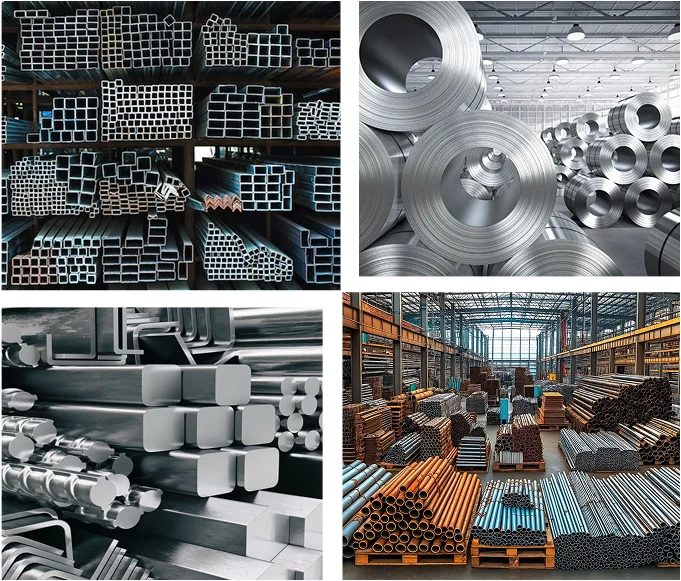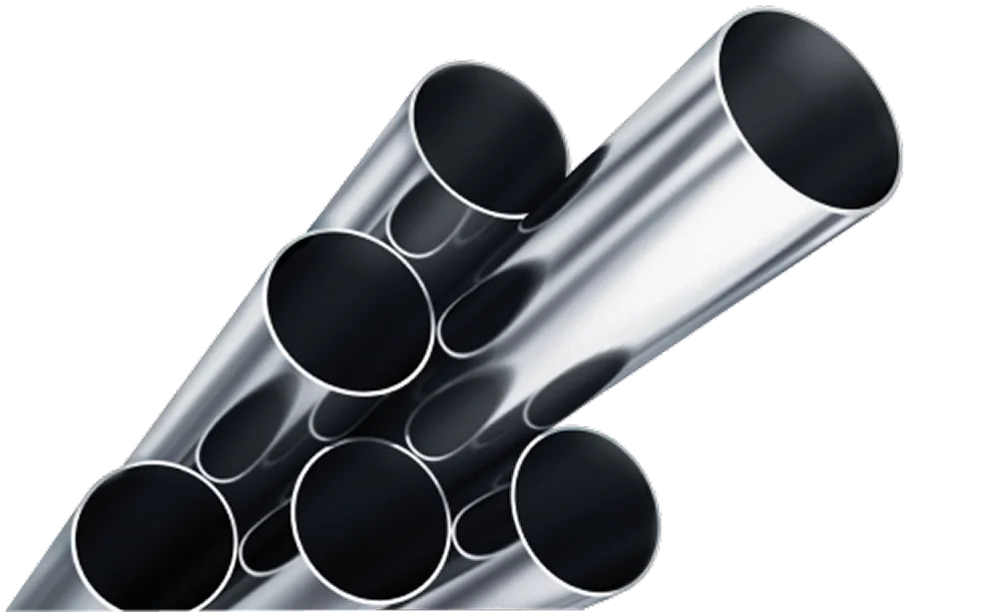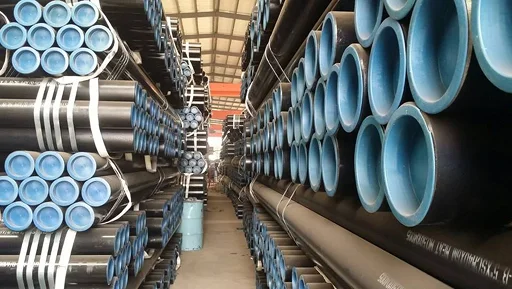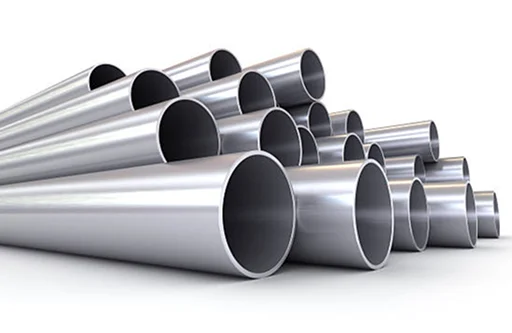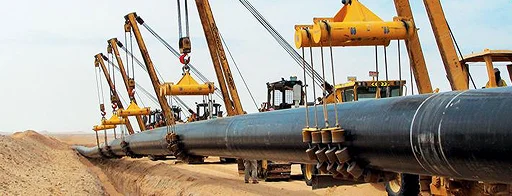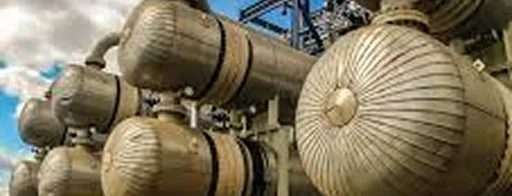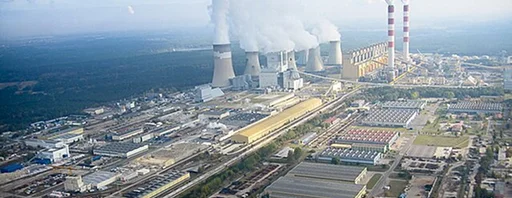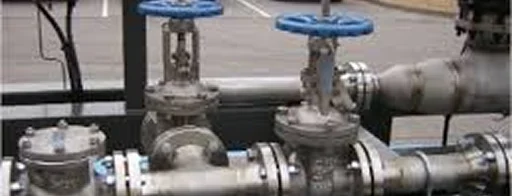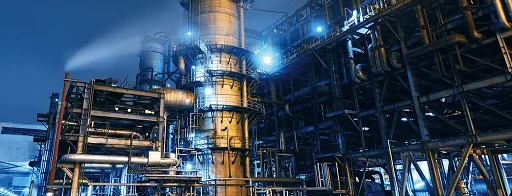BS 3059 Boiler Tubes are a vital component in high-temperature systems, with BS 3059 Part 2 Gr. 360 being a highly sought-after grade. This specification covers carbon and alloy steel Electric Resistance Welded (ERW) tubes intended for use in boilers and superheaters with specified elevated temperature properties (BS 3059-2:1990). As a dealer and stockholder, USA Piping Solution supplies these reliable Carbon Steel BS 3059 Heat Exchanger Tubes in welded construction, offering competitive pricing for the BS 3059 Boiler Tube Price.
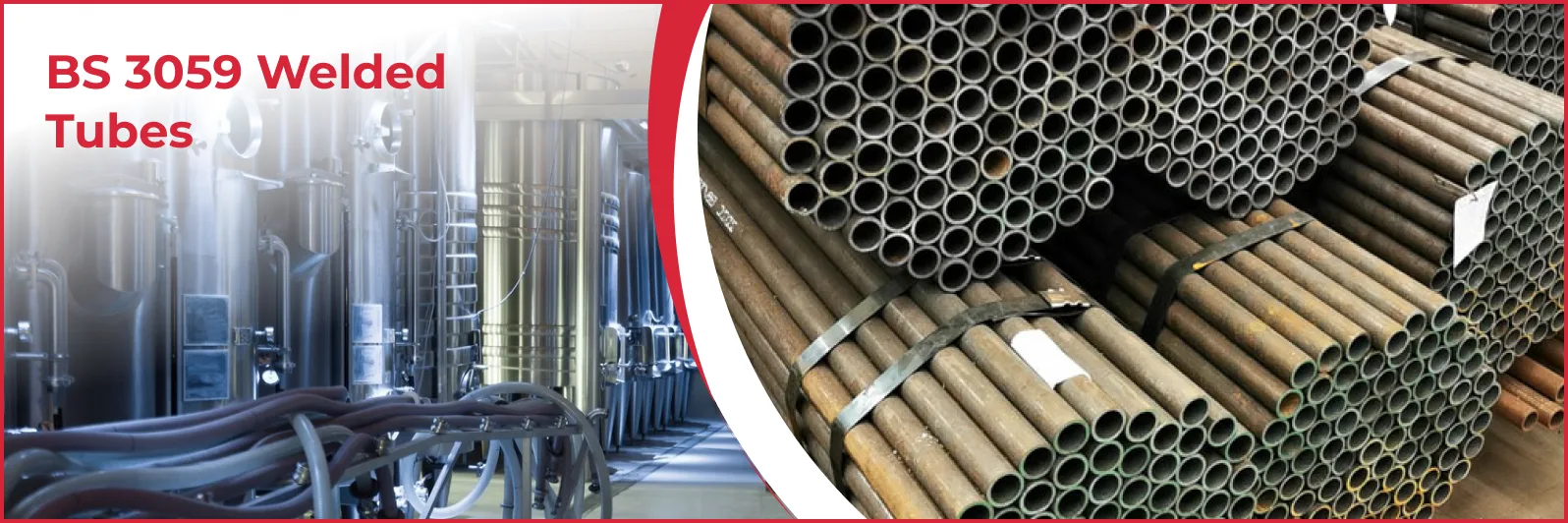
The tubes adhere strictly to BS 3059 Part 2 Specifications. Dimensions for these BS 3059 ERW Tubes typically range from 19.05 mm to 114.3 mm in outer diameter with a wall thickness between 2 mm and 14 mm, and a maximum length of 16 m. The manufacturing methods allow for a wide range of sizing, with ERW/LSAW/DSAW Steel Pipe available with OD from 1/2 inch to 52 inches.
The BS 3059 Part 2 Gr. 360 grade guarantees specific mechanical properties, including a Tensile Strength of 360-500 MPa, a minimum Yield Strength of 235 MPa, and an elongation of 24%. Dimensions are tightly controlled, with cold-rolled pipe tolerance at ±0.05 mm. At USA Piping Solution, we ensure all products comply with PED quality standards and offer robust construction, compact design, and excellent corrosion resistance to meet client needs.
BS 3059 Boiler Tube Specifications (Grade 360)
The tubes are manufactured to the rigorous BS 3059 Part II Standard, focusing on the widely used Grade 360 carbon steel. We specialize in Large Diameter BS 3059 Pipe and ensure material quality by sourcing strictly from reputable mills in Europe, Japan, Korea, the US, Russia, and India.
| Specification Area | Detail |
|---|---|
| Construction Types | Seamless, ERW (Electric Resistance Welded), Welded, and Fabricated. |
| Craft | Cold rolled and Cold drawn. |
| Form | Round, Hydraulic, etc. |
| Size Range (NB) | 1/2” NB up to 36” NB. |
| Outer Diameter (OD) | 5 mm to 90 mm. |
| Wall Thickness | 0.5 mm to 15 mm (Nominal thickness range 3 mm to 12 mm). |
| Schedules | SCH 40, SCH 80, SCH 160, SCH XS, SCH XXS, and all other schedules. |
| Length | Minimum 3 Meters, Maximum 18 Meters, or according to customer's requirement. |
| Ends | Plain End, Beveled End, Threaded. |
| Tolerance | Cold drawn pipe: ±0.1 mm; Cold rolled pipe: ±0.05 mm. |
Chemical Composition of BS 3059 Boiler Tubes
The table below lists the primary alloying elements for the three main grades. Unless a range is specified, the value indicates a maximum (≤ or Max) limit.
| Standard | Grade | C | Si | Mn | P (Max) | S (Max) | Cr | Mo |
|---|---|---|---|---|---|---|---|---|
| BS 3059 Part 1 | 320 | ≤0.16 | 0.10−0.35 | 0.30−0.70 | ≤0.040 | ≤0.040 | − | − |
| BS 3059 Part 2 | 360 | ≤0.17 | 0.10−0.35 | 0.40−0.80 | ≤0.035 | ≤0.035 | − | − |
| BS 3059 Part 2 | 440 | 0.12−0.18 | 0.10−0.35 | 0.90−1.20 | ≤0.035 | ≤0.035 | − | − |
Mechanical Properties of of BS 3059 Boiler Tubes
These properties demonstrate the minimum strength and ductility required for each grade, ensuring the tubes perform reliably under pressure and heat.
| Standard | Grade | Tensile Strength (MPa) | Yield Strength (MPa Min) | Elongation (% Min) |
|---|---|---|---|---|
| BS 3059 Part 1 | 320 | 320−480 | 195 | 25 |
| BS 3059 Part 2 | 360 | 360−500 | 235 | 24 |
| BS 3059 Part 2 | 440 | 440−580 | 245 | 21 |
BS 3059 Boiler Tube Equivalent Grades
This reference table is critical for sourcing alternatives, showing the most common comparable grades across international standards (ASTM, EN, DIN, JIS).
| BS 3059 Grade | Equivalent Grades |
|---|---|
| BS 3059 Pt 1 Gr 320 | ASTM: A178 Gr A (ERW), A179 (Seamless - chemistry similar) EN: 10216-1 P195TR1/TR2, 10217-1 P195TR1/TR2 Other: DIN 17175 St 35.8, JIS G3461 STB 340 |
| BS 3059 Pt 2 Gr 360 | ASTM: A178 Gr C (ERW), A192 (Seamless - high pressure), A210 Gr A1 (Seamless) EN: 10216-2 P235GH, 10217-2 P235GH Other: DIN 17175 St 35.8 / St 45.8 (range overlap), JIS G3461 STB 410 |
| BS 3059 Pt 2 Gr 440 | ASTM: A178 Gr D (ERW), A210 Gr C (Seamless) EN: 10216-2 P265GH, 10217-2 P265GH Other: DIN 17175 St 45.8, JIS G3461 STB 510 |
BS 3059 Boiler Tube Pressure Rating
The chart below outlines the Maximum Allowable Pressure (MAP) for BS 3059 tubes based on ANSI B36.10 dimensions at a service temperature of 400°F. These ratings help determine the safe operating pressures based on tube size, wall thickness, and schedule.
| NPS (in) | Outside Diameter (in) | SCH 10 | SCH 20 | SCH 30 | SCH STD | SCH 40 | SCH 60 | SCH XS / 80 | SCH 100 | SCH 120 | SCH 140 | SCH 160 | SCH XXS |
|---|---|---|---|---|---|---|---|---|---|---|---|---|---|
| 1/4 | 0.54 | - | - | - | 7985 | 7985 | - | 10798 | 10798 | - | - | - | - |
| 3/8 | 0.675 | - | - | - | 6606 | 6606 | - | 9147 | 9147 | - | - | - | - |
| 1/2 | 0.84 | - | - | - | 6358 | 6358 | - | 8575 | 8575 | - | - | 10908 | 17150 |
| 3/4 | 1.05 | - | - | - | 5273 | 5273 | - | 7187 | 7187 | - | - | 10220 | 14373 |
| 1 | 1.315 | - | - | - | 4956 | 4956 | - | 6670 | 6670 | - | - | 9316 | 13340 |
| 1 1/4 | 1.66 | - | - | - | 4133 | 4133 | - | 5638 | 5638 | - | - | 7380 | 11276 |
| 1 1/2 | 1.9 | - | - | - | 3739 | 3739 | - | 5158 | 5158 | - | - | 7247 | 10316 |
| 2 | 2.375 | - | - | - | 3177 | 3177 | - | 4498 | 4498 | - | - | 7097 | 8995 |
| 2 1/2 | 2.875 | - | - | - | 3460 | 3460 | - | 4704 | 4704 | - | - | 6391 | 9408 |
| 3 | 3.5 | - | - | - | 3024 | 3024 | - | 4200 | 4200 | - | - | 6132 | 8400 |
| 3 1/2 | 4 | - | - | - | 2769 | 2769 | - | 3896 | 3896 | - | - | - | - |
| 4 | 4.5 | - | - | - | 2581 | 2581 | - | 3670 | 3670 | 4769 | - | 5782 | 7339 |
| 5 | 5.563 | - | - | - | 2273 | 2273 | - | 3303 | 3303 | 4404 | - | 5505 | 6606 |
| 6 | 6.625 | - | - | - | 2071 | 2071 | - | 3195 | 3195 | 4157 | - | 5318 | 6390 |
| 8 | 8.625 | 1420 | 1574 | 1829 | 1829 | 2307 | 2841 | 2841 | 3375 | 4085 | 4613 | 5147 | 4971 |
| 10 | 10.75 | 1140 | 1399 | 1664 | 1664 | 2279 | 2279 | 2708 | 3277 | 3847 | 4558 | 5128 | 4558 |
| 12 | 12.75 | 961 | 1268 | 1441 | 1560 | 2160 | 1922 | 2644 | 3244 | 3843 | 4324 | 5042 | 3843 |
| 14 | 14 | 875 | 1092 | 1313 | 1313 | 1533 | 2079 | 1750 | 2625 | 3283 | 3829 | 4375 | 4921 |
| 16 | 16 | 766 | 956 | 1148 | 1148 | 1531 | 2009 | 1531 | 2585 | 3157 | 3733 | 4404 | 4882 |
| 18 | 18 | 681 | 849 | 1192 | 1021 | 1530 | 2042 | 1361 | 2553 | 3147 | 3743 | 4252 | 4848 |
| 20 | 20 | 613 | 919 | 1225 | 919 | 1455 | 1989 | 1225 | 2526 | 3138 | 3675 | 4288 | 4824 |
| 22 | 22 | 557 | 835 | 1114 | 835 | - | 1949 | 1114 | 2506 | 3063 | 3619 | 4176 | 4733 |
| 24 | 24 | 510 | 766 | 1147 | 766 | 1405 | 1978 | 1021 | 2489 | 3126 | 3700 | 4210 | 4786 |
| 30 | 30 | 510 | 817 | 1021 | 613 | - | - | 817 | - | - | - | - | - |
| 32 | 32 | 478 | 766 | 957 | 574 | 1054 | - | - | - | - | - | - | - |
| 34 | 34 | 450 | 721 | 901 | 540 | 992 | - | - | - | - | - | - | - |
| 36 | 36 | 425 | 681 | 851 | 510 | 1021 | - | - | - | - | - | - | - |
| 42 | 42 | - | 583 | 729 | 438 | 875 | - | - | - | - | - | - | - |
BS 3059 Boiler Tube Size Chart: Dimensions and Schedules
The dimensions below correspond to the Nominal Wall Thickness (mm) for the specified Outside Diameter (OD) across various schedules.
| NB (mm) | Size (in) | Outside Diameter (OD) (mm) | SCH 40S (mm) | SCH 5S (mm) | SCH 10S (mm) | SCH S10 (mm) | SCH S20 (mm) | SCH S40 (mm) | SCH 60 (mm) | SCH XS/80S (mm) | SCH S80 (mm) | SCH 100 (mm) | SCH 120 (mm) | SCH 140 (mm) | SCH 160 (mm) | SCH XXS (mm) |
|---|---|---|---|---|---|---|---|---|---|---|---|---|---|---|---|---|
| - | 1/8 | 10.29 | - | - | 1.2 | - | - | 1.73 | - | 2.41 | - | - | - | - | - | - |
| - | 1/4 | 13.72 | - | - | 1.7 | - | - | 2.24 | - | 3.02 | - | - | - | - | - | - |
| - | 3/8 | 17.15 | - | - | 1.7 | - | - | 2.31 | - | 3.2 | - | - | - | - | - | - |
| 15 | 1/2 | 21.34 | 2.8 | 1.7 | 2.1 | - | - | 2.77 | - | 3.73 | 3.73 | - | - | - | 4.78 | 7.47 |
| 20 | 3/4 | 26.67 | 2.9 | 1.7 | 2.1 | - | - | 2.87 | - | 3.91 | 3.91 | - | - | - | 5.56 | 7.82 |
| 25 | 1 | 33.4 | 3.4 | 1.7 | 2.8 | - | - | 3.38 | - | 4.55 | 4.55 | - | - | - | 6.35 | 9.09 |
| 32 | 1 1/4 | 42.16 | 3.6 | 1.7 | 2.8 | - | - | 3.56 | - | 4.85 | 4.85 | - | - | - | 6.35 | 9.7 |
| 40 | 1 1/2 | 48.26 | 3.7 | 1.7 | 2.8 | - | - | 3.68 | - | 5.08 | 5.08 | - | - | - | 7.14 | 10.2 |
| 50 | 2 | 60.33 | 3.9 | 1.7 | 2.8 | - | - | 3.91 | - | 5.54 | 5.54 | - | - | - | 9.74 | 11.1 |
| 65 | 2 1/2 | 73.03 | 5.2 | 2.1 | 3.1 | - | - | 5.16 | - | 7.01 | 7.01 | - | - | - | 9.53 | 14 |
| 80 | 3 | 88.9 | 5.5 | 2.1 | 3.1 | - | - | 5.49 | - | 7.62 | 7.62 | - | - | - | 11.1 | 15.2 |
| 90 | 3 1/2 | 101.6 | 5.7 | 2.1 | 3.1 | - | - | 5.74 | - | 8.08 | 8.08 | - | - | - | - | - |
| 100 | 4 | 114.3 | 6 | 2.1 | 3.1 | - | - | 6.02 | - | 8.56 | 8.56 | 11.1 | - | - | 13.5 | 17.1 |
| 125 | 5 | 141.3 | 6.6 | 2.8 | 3.4 | - | - | 6.55 | - | 9.53 | 9.53 | 12.7 | - | - | 15.9 | 19.1 |
| 150 | 6 | 168.3 | 7.1 | 2.8 | 3.4 | - | - | 7.11 | - | 10.97 | 11 | 14.3 | - | - | 18.3 | 22 |
| 200 | 8 | 219.1 | 8.2 | 2.8 | 3.8 | - | 6.4 | 8.18 | 10.3 | 12.7 | 12.7 | 15.1 | 19.3 | 20.6 | 23 | 22.2 |
| 250 | 10 | 273.1 | 9.3 | 3.4 | 4.2 | - | 6.4 | 9.27 | 12.7 | 12.7 | 15.1 | 19.3 | 21.4 | 25.4 | 28.6 | 25.4 |
| 300 | 12 | 323.9 | 9.5 | 4 | 4.6 | - | 6.4 | 10.3 | 14.3 | 12.7 | 17.5 | 21.4 | 25.4 | 28.6 | 33.3 | 25.4 |
| 350 | 14 | 355.6 | 9.5 | 4 | 4.8 | 6.4 | 7.9 | 11.1 | 15.1 | 12.7 | 19.1 | 23.8 | 27.8 | 31.8 | 35.7 | - |
| 400 | 16 | 406.4 | 9.5 | 4.2 | 4.8 | 6.4 | 7.9 | 12.7 | 16.7 | 12.7 | 21.4 | 26.2 | 31 | 36.5 | 40.5 | - |
| 450 | 18 | 457.2 | 9.5 | 4.2 | 4.8 | 6.4 | 7.9 | 14.3 | 19.1 | 12.7 | 23.8 | 29.4 | 34.9 | 39.7 | 45.2 | - |
| 500 | 20 | 508 | 9.5 | 4.8 | 5.5 | 6.4 | 9.5 | 15.1 | 20.6 | 12.7 | 26.2 | 32.5 | 38.1 | 44.5 | 50 | - |
| 550 | 22 | 558.8 | 9.5 | 4.8 | 5.5 | 6.4 | 9.5 | - | 22.2 | 12.7 | 28.6 | 34.9 | 41.3 | 47.6 | 54 | - |
| 600 | 24 | 609.6 | 9.5 | 5.5 | 6.4 | 6.4 | 9.5 | 17.5 | 24.6 | 12.7 | 31 | 38.9 | 46 | 52.4 | 59.5 | - |
| 650 | 26 | 660.4 | 9.5 | - | - | 7.9 | 13 | - | - | 12.7 | - | - | - | - | - | - |
| 700 | 28 | 711.2 | 9.5 | - | - | 7.9 | 13 | - | - | 12.7 | - | - | - | - | - | - |
| 750 | 30 | 762 | 9.5 | 6.4 | 7.9 | 7.9 | 13 | - | - | 12.7 | - | - | - | - | - | - |
| 800 | 32 | 812.8 | 9.5 | - | - | 7.9 | 13 | 17.5 | - | 12.7 | - | - | - | - | - | - |
| 850 | 34 | 863.6 | 9.5 | - | - | 7.9 | 13 | 17.5 | - | 12.7 | - | - | - | - | - | - |
| 900 | 36 | 914.4 | 9.5 | - | - | 7.9 | 13 | 19.1 | - | 12.7 | - | - | - | - | - | - |
BS 3059 Boiler Tube Weight and Dimensional Chart
This table summarizes key dimensional and weight data for various Nominal Pipe Sizes (NPS) and schedules, helping estimate material density and internal capacity.
| Size NPS (in) | Pipe O.D. (in) | Wall Thickness (in) | Pipe I.D. (in) | Weight per Foot (lb) | Schedule | Section Modulus (in3) | Gallon Capacity Per Linear Foot (gal/ft) |
|---|---|---|---|---|---|---|---|
| 1/2 | 0.840 | 0.109 | 0.622 | 0.85 | STD/40 | 0.0407 | 0.0158 |
| 0.147 | 0.546 | 1.09 | XHY/80 | 0.0478 | 0.0122 | ||
| 0.294 | 0.252 | 1.72 | XXHY | 0.0577 | 0.0026 | ||
| 1 | 1.315 | 0.133 | 1.049 | 1.68 | STD/40 | 0.1328 | 0.0449 |
| 0.179 | 0.957 | 2.17 | XHY/80 | 0.1606 | 0.0374 | ||
| 0.358 | 0.599 | 3.66 | XXHY | 0.2136 | 0.0146 | ||
| 2 | 2.375 | 0.109 | 2.157 | 2.64 | 10 | 0.4205 | 0.1898 |
| 0.154 | 2.067 | 3.66 | STD/40 | 0.5606 | 0.1743 | ||
| 0.218 | 1.939 | 5.03 | XHY/80 | 0.7309 | 0.1534 | ||
| 0.436 | 1.503 | 9.04 | XXHY | 1.1043 | 0.0922 | ||
| 3 | 3.500 | 0.216 | 3.068 | 7.58 | STD/40 | 1.7241 | 0.3840 |
| 0.300 | 2.900 | 10.26 | XHY/80 | 2.2253 | 0.3431 | ||
| 0.600 | 2.300 | 18.6 | XXHY | 3.4243 | 0.2158 | ||
| 4 | 4.500 | 0.237 | 4.026 | 10.80 | STD/40 | 3.2145 | 0.6613 |
| 0.337 | 3.826 | 15.00 | XHY/80 | 4.2713 | 0.5972 | ||
| 0.674 | 3.152 | 27.57 | XXHY | 6.7927 | 0.4054 | ||
| 6 | 6.625 | 0.280 | 6.065 | 18.99 | STD/40 | 8.4958 | 1.5008 |
| 0.432 | 5.761 | 28.60 | XHY/80 | 12.224 | 1.3541 | ||
| 1.125 | 4.375 | 66.14 | - | 23.1237 | 0.7809 |
Applications of BS 3059 Boiler Tubes
- Water-Tube Boilers
- Fire-Tube Boilers
- Boiler Bank Tubes
- Economizer Tubes
- Air Preheaters
- Superheater Tubes
- Reheater Tubes
- High-Pressure Piping
- Pressure Vessel Components
Related Products
Our capabilities extend to a wide array of tubes and pipes used in thermal engineering and related fields:
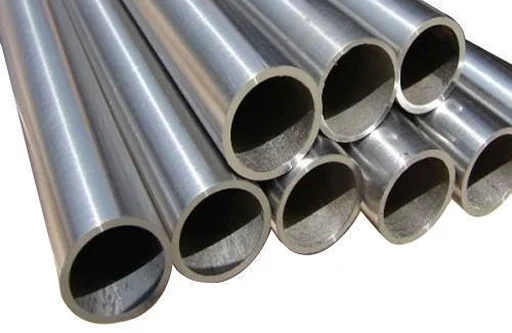
ASTM A179 / SA179 Tubes
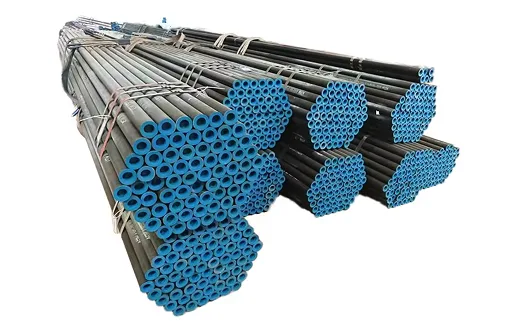
ASTM A210 / SA210 Tubes
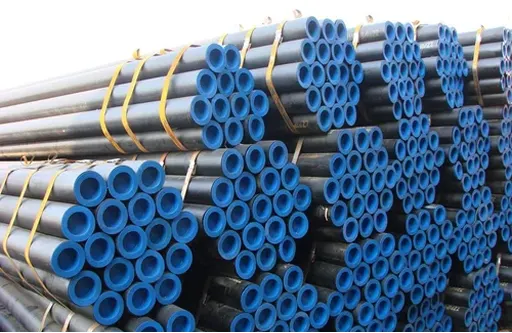
ASTM A213 Tubes
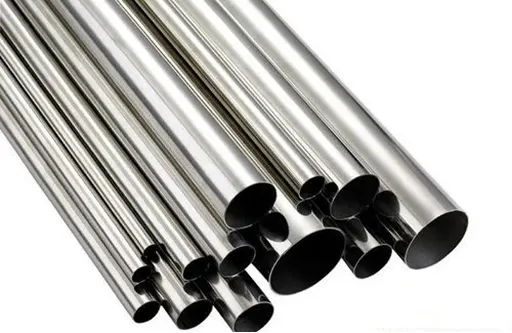
EN 10216 / EN 10217 Tubes
Get a Competitive Price for BS 3059 Boiler Tubes Today!
To secure a competitive price on BS 3059 Boiler Tubes for your critical heat transfer equipment, look no further than USA Piping Solution. We are your definitive source for premium Carbon Steel Boiler Tubes manufactured precisely to the rigorous specifications of BS 3059 Parts 1 and 2, including the widely utilized BS 3059 Gr. 360. Contact us today to acquire materials specifically engineered for the safety, performance, and longevity demanded by modern boiler environments.
Request Your BS 3059 Tubes Quote Today!Frequently Asked Questions about BS 3059 Boiler Tubes
What is BS 3059 material?
BS 3059 is a British standard for manufacturing steel tubes used inside big machines like boilers, superheaters, and heat exchangers. These machines use very hot water and steam under high pressure.
What is BS 3059-1 Grade 320 ERW Tubes?
BS 3059-1 Grade 320 ERW Tubes are cost-effective, simple steel tubes (Low Carbon Steel). They have a small amount of carbon (less than 0.16%) and manganese. They're good because they are easy to bend and shape. In the steel world, people just call them CS Pipes (Carbon Steel) or MS Pipes (Mild Steel).
What is the difference between Grade 360 and Grade 440?
Grade 440 has higher tensile strength than Grade 360, making it suitable for more demanding applications.
Where are BS 3059 Boiler Tubes used?
They are used in places that need to move hot, high-pressure steam or water:
- Power Plants: To make steam that spins turbines for electricity.
- Factories: For general heating and process steam.
- Ship Engines: In marine boilers.
What is the pressure rating of BS 3059 Boiler Tubes?
The safe pressure depends completely on how thick the wall is and how hot the steam is. A small, thick tube can handle a pressure of over 10,000 psi at 400∘F, but a large, thin tube can only handle a few hundred psi.
